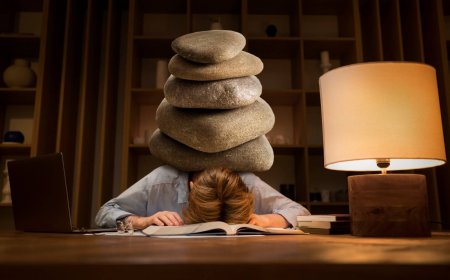Ways to Reduce Headaches and What to Do
Headaches can be a real pain—literally. Whether it's a dull ache or a throbbing nightmare, finding relief is key to getting back to your day.

Headaches can be a real painliterally. Whether it's a dull ache or a throbbing nightmare, finding relief is key to getting back to your day. Below, we explore practical, evidence-based ways to reduce headaches and steps to take when they strike.
Understanding Headaches
Headaches come in many formstension headaches, migraines, cluster headaches, or those triggered by dehydration, stress, or screen time. Identifying the type can help, but general relief strategies often work across the board. Always consult a doctor if headaches are frequent, severe, or accompanied by symptoms like vision changes or nausea.
Effective Ways to Reduce Headaches
1. Stay Hydrated
Dehydration is a common headache trigger. Aim for 810 cups of water daily, more if you're active or in a hot climate. Keep a reusable water bottle handy to sip throughout the day.
2. Manage Stress
Stress often leads to tension headaches. Try these:
-
Deep Breathing: Inhale for 4 seconds, hold for 4, exhale for 4. Repeat for 5 minutes.
-
Meditation: Apps like Headspace or Calm can guide you through quick sessions.
-
Stretching: Gentle neck and shoulder stretches can release tension.
3. Adjust Your Environment
Bright lights, loud noises, or prolonged screen time can spark headaches.
-
Dim the Lights: Use soft lighting or blue-light-blocking glasses for screens.
-
Take Breaks: Follow the 20-20-20 ruleevery 20 minutes, look 20 feet away for 20 seconds.
-
Quiet Down: Find a calm space or use earplugs if noise is an issue.
4. Eat Balanced Meals
Low blood sugar or caffeine withdrawal can cause headaches.
-
Eat Regularly: Small, balanced meals with protein, healthy fats, and complex carbs.
-
Limit Triggers: Common culprits include alcohol, aged cheeses, and processed foods.
-
Caffeine in Moderation: A small amount (like a cup of coffee) can help, but too much may worsen it.
5. Get Enough Sleep
Poor sleep is a major headache trigger.
-
Stick to a Schedule: Aim for 79 hours of sleep at consistent times.
-
Create a Sleep-Friendly Space: Keep your bedroom dark, cool, and quiet.
-
Limit Screen Time: Avoid devices 12 hours before bed.
6. Try Over-the-Counter Remedies
For occasional headaches, medications like ibuprofen, aspirin, or acetaminophen can help. Follow dosage instructions and avoid overuse, which can lead to rebound headaches.
7. Apply Heat or Cold
-
Cold Pack: Place a cold cloth or ice pack (wrapped in a towel) on your forehead for 15 minutes to numb pain, especially for migraines.
-
Warm Compress: For tension headaches, a warm towel on your neck or shoulders can relax muscles.
8. Stay Active
Regular exercise improves blood flow and reduces stress, preventing headaches.
-
Moderate Activity: Walking, yoga, or swimming for 30 minutes, 5 days a week.
-
Avoid Overexertion: Intense workouts can sometimes trigger headaches, so ease in.
What to Do When a Headache Strikes
-
Pause and Assess: Find a quiet space, sip water, and note any triggers (e.g., skipped meals or stress).
-
Try Quick Relief: Apply a cold or warm compress, take a short walk, or have a light snack.
-
Rest: If possible, lie down in a dark, quiet room for 1530 minutes.
-
Medicate if Needed: Use OTC meds sparingly and as directed.
-
Track Symptoms: Keep a headache diary (date, time, duration, triggers) to identify patterns.
When to See a Doctor
Seek medical help if:
-
Headaches occur more than twice a week.
-
Pain is severe or sudden ("thunderclap" headache).
-
You experience confusion, seizures, or loss of consciousness.
-
Headaches worsen despite treatment.
Prevention Tips
-
Routine Matters: Consistent sleep, meals, and exercise keep headaches at bay.
-
Limit Triggers: Identify and avoid personal triggers like certain foods or loud environments.
-
Stay Proactive: Regular check-ups can catch underlying issues like high blood pressure or vision problems.
Final Thoughts
Headaches dont have to derail your day. By staying hydrated, managing stress, and making small lifestyle tweaks, you can reduce their frequency and intensity. When they hit, simple remedies like rest, compresses, or medication can work wonders. Listen to your body, track patterns, and seek professional advice if needed to keep headaches under control.
Disclaimer: This blog is for informational purposes only. Always consult a healthcare professional for persistent or severe headaches.
To Know More: ???? ????? ?????? ????? ? ???? ???? ????? ??? ??????






































